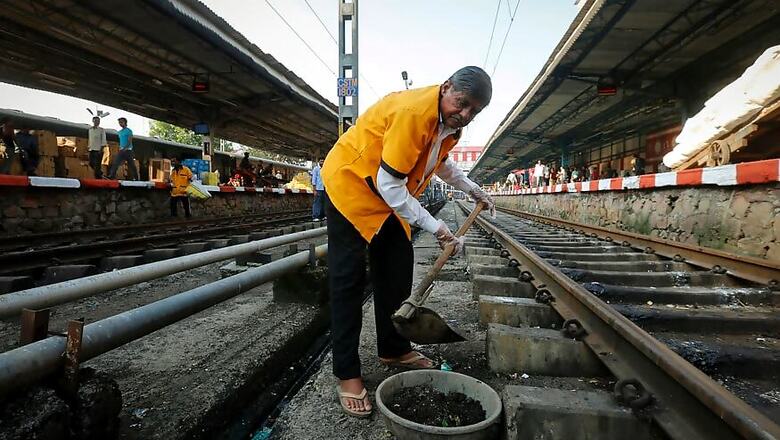
views
New Delhi: The Centre for Science and Environment has said that the Swachh Survekshan rankings released by the Union government recently only look at visible cleanliness and the rankings are not holistic in nature.
CSE further said that most top ranked cities were still dumping solid waste on poorly managed landfills and dumpsites.
In a statement, Chandra Bhushan, deputy director general, CSE, said: “Majority of the top 50 cities (with population above 1 lakh) are visibly clean, but do not have appropriate systems for processing and disposal. They continue to collect waste and dump it in poorly managed landfills and dumpsites.”
As per the CSE analysis, most of the cities in the top 50 do not collect segregated waste at source. The analysis further states that in Chandigarh, NDMC (New Delhi Municipal Council), SDMC (South Delhi Municipal Council), Varanasi, Ghaziabad, Greater Hyderabad, Ahmedabad, Jabalpur and Jaipur there is no collection of segregated waste at source.
The report mentions that at some places, however, mixed waste is further sorted into different fractions.
Indore, which has been ranked as the cleanest city in the country repeatedly, has definitely created systems for segregation, collection, processing and disposal. CSE has, however, found the model to be highly capital-intensive.
As far as Madhya Pradesh is concerned, which has 11 out of the top 50 cities, collection has improved but activities like processing and disposal is still a concern. Chandigarh, as per CSE, has no effective system to segregate waste at source.
In NDMC (ranked 4) and SDMC (ranked 32), garbage disposal has been mechanised by using waste compactors. However, 80 per cent of the waste processing is happening via waste-to-energy. That said, the plant to be used for this purpose has been under intense scrutiny for causing pollution.
Cities such as Tirupati, Aligarh and Ghaziabad have no proper processing and disposal mechanisms in place. However, the Survekshan methodology is not recognising cities that have adopted highly decentralised systems.
“One major anomaly in the Survekshan results is that it continues to mark cities on their door-to-door collection systems. But some cities do not practice door-to-door, and yet are the cleanest, adopting household level treatment of wet waste and collection of dry waste by the local body,” said Swati Singh Sambyal, Programme Manager, Waste Management unit, CSE.
Most of the waste in such cities, for example like those in Kerala, is converted into compost or biogas at the household or community-level. Inorganic wastes like plastic, glass, metals, papers etc. are sent for recycling. They end up making money from waste instead of spending it in waste management, states CSE.
‘Cities must shift their focus towards creating end-to-end systems to support segregation with effective processing and disposal mechanisms. Our analysis shows that waste management based on segregation and decentralised processing is cost-effective and sustainable. Swach h Survekshan must incentivise segregation and not merely cleanliness,” summed up Bhushan.




















Comments
0 comment